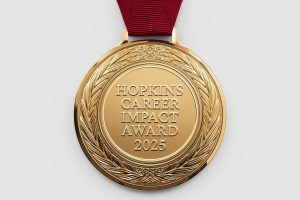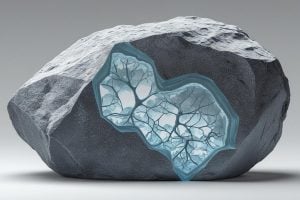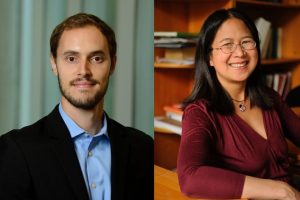Ryan Hurley is an associate professor in the Department of Mechanical Engineering and holds secondary appointments in the Departments of Civil and Systems Engineering and Materials Science and Engineering. He currently serves as a deputy director of the Hopkins Extreme Materials Institute (HEMI) and associate program director of the Materials Science in Extreme Environments University Research Alliance (MSEE URA).
Hurley’s research group develops and uses novel experiments and numerical models to study the mechanical behavior and failure mechanisms of granular materials, rocks, concrete, and lattice materials. His group is a frequent user of synchrotron X-ray facilities around the world, at which they seek to see and understand deformation mechanisms in materials at the smallest length and time scales. His research has been featured in prestigious journals such as The Journal of the Physics and Mechanics of Solids and The Proceedings of the National Academy of Sciences.
Hurley is an active member of professional societies including the Engineering Mechanics Institute (EMI), the International Society for Soil Mechanics and Geotechnical Engineering (ISSMGE), the Society of Engineering Science (SES), and the American Physical Society (APS). He serves as co-editor of the open-source journal Open Geomechanics; and has served as a reviewer for numerous journals such as The Journal of Geophysical Research and the Proceedings of the National Academy of Sciences, as well as funding agencies including NSF, ARO, and NASA. Hurley has served as the chair of the annual Mach Conference since 2021 and is a core member of the TC105 (Technical Committee on “Geomechanics from Micro-to-Macro”) of ISSMGE.
He received a 2020 NSF CAREER award, the 2021 AEOP Mentor of the Year Award, a 2022 AFOSR YIP Award, and a 2023 JHU Catalyst Award.
Hurley joined the Whiting School of Engineering faculty in 2018. Hurley received his PhD from the California Institute of Technology (Caltech) in 2015, where he studied the behavior of granular materials using computational modeling and small-scale experiments. Hurley performed his postdoctoral research at Lawrence Livermore National Laboratory (LLNL) from 2015 – 2017, where he received a 2017 Department of Energy Secretary’s Appreciation Award for contributions to the Source Physics Experiment. During his time at LLNL, Hurley also independently led a Laboratory Directed Research and Development (LDRD) project to study the mechanical compaction of granular materials using X-ray imaging and diffraction.



